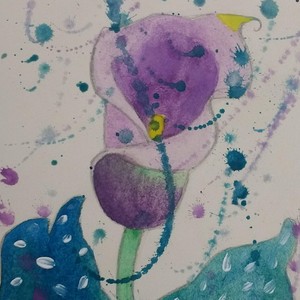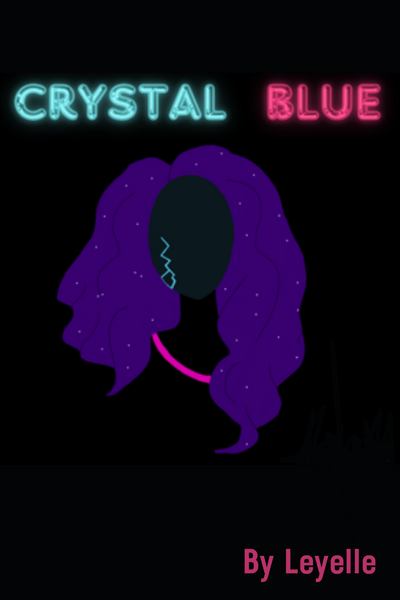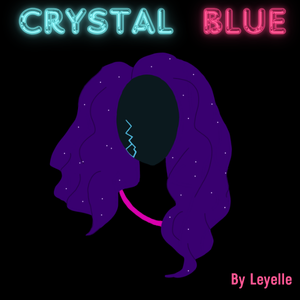Judith’s Folder
File #14: Compiled by Lena Herrans
4 similar texts, believed to be connected, and thus, merged into one.
Circa 14 BCE. From the regions of Corfu and the Ionian Islands belonging to Greece.
Translated from the Hahl (Old Phantish) and Ancient Greek by Melanie Crawford and Melissa Aetos.
Title (assigned, for convenience, by the official archaeological team of the United States Sanctuary for Homo Phantasma (USSHP): “The Sleepless Wanderer”
***
Not long ago, there lived a young man in a little farming village by the northern coast of the Blue Eye (Referencing Lord Wayden’s Old Phantish Index for translation, Section #5, Old Phantish geographical names, it is believed that “Blue Eye” is a Hahl world for one of the larger Ionian Islands, perhaps because of its semi-circular or ring-like shape.)
One day the young man’s neighbors gathered together to plot against him and when he returned home from his work, they dragged him to the village center and accused him of a crime he didn’t commit. His name was disgraced throughout the entire village and the townsmen all voted to have the young man banished.
Furious and hungry after being cast out of his home village, the young man wandered alone through the wilderness longing for a way to avenge himself against his enemies.
In the midst of his wandering, the man stumbled upon a great golden field and in the center of that field stood a magnificent tree.
The tree promised the wanderer that she could give him the power to destroy his enemies, so he took the silver apple which she offered him from her own branches and ate it with the ravenousness of a vuleffe (Referencing Mahli Leoulu’s Staff (the “Old Phantish Rosetta Stone”) the word “vuleffe” in Old Phantish, despite bearing a phonetic resemblance to the English ‘wolf’ “really means all predatory creatures.”)
Immediately, he transformed into a dragon. (Again referencing Mahli Leolu’s Staff, the Old Phantish word for ‘dragon’ found in the untranslated text has a number of different meanings depending on what syllables are emphasized by the speaker. As accent marks seemed to be used rather inconsistently in the Old Phantish written language, context is the only guiding line translators can use to determine whether the word means ‘dragon,’ ‘viper’ or ‘‘thief’ at any given time.)
Now more powerful than any beast on the land or in the air, the wanderer flew back to his home village and burned it to the ground with a hail of flaming stars.
But then he grew dissatisfied with his new body and returned to the wilderness to find the glorious tree again.
“I’m hungry,” he told the tree. “There isn’t enough prey on the island to sustain a body of this size.”
So the tree gave the wanderer an apple of gold and he ate it. Immediately he turned into the son of an asp. (see endnote #1)
Then the wanderer fed himself off small creatures and his stomach was never empty. But soon he grew tired of this body too and returned to the eternal tree for the third, and last time.
“I’m tired of crawling about on my belly and swallowing the sand,” he told the tree.
So the tree gave the wanderer an apple studded with sapphires and when he ate it he became a man once again.
***
Melanie’s note:
(Is that really where it ends? I didn’t receive any more documents to translate.)
Lena’s note:
Experts believe this story is a parable or allegory of some kind, to illustrate the idea of moral or ethical duplicity. The man walks upright, but the snake is deceitful and moves about in a way that makes it easy to stay hidden. Perhaps it’s a religious metaphor for the way that bitterness can corrupt the heart. Some believe that the ancients in that part of the world worshiped a tree like deity who represented the principles of justice and retribution in many of their myths.
***
End Note (Judith’s Additions)
#1
‘Son of an Asp’ is all one word in Hahl, and it is the lowest form of profanity, the worst possible insult a phant could give another phant, because of their abject hatred and disdain for snakes and dragons.
***
Addition: Judith’s Note (March 13th 20XX):
I’m definitely going to get in trouble if they find out about this one, but I’d like it to go down on the record that I did not make a copy until they’d already removed this text from the ‘highly classified’ folder. I’m more than willing to pay the fine for copying sensitive documents without authorization, but I am not about to part with my library.
***
File #2: Compiled (and translated) by Suiren Yee and Margot Dives
***
Circa 700 AD: From the region of Cologne, Germany.
Translated from the Hahl (Old Phantish) and Old High German.
Title: The Fretful King
***
Translator’s note (for all readers.) Dives and Yee accredited: The word ‘fretful’ is used numerous times throughout this document, but it is hard to say whether this is the proper translation of the Old Phantish word which was used in the original text. Recently recovered texts, including but not limited to Mahli Leolu’s Staff and ‘The Dragon Bible’ argue that this word was used to express multiple strong emotions including anxiety, restlessness, depression, and paranoia or ‘the prevaling sense that one is being watched.”
***
Long long ago in a very small, very poor kingdom by the Rhine there lived a peaceful, but fretful king with no riches to his name. The king longed to acquire wealth for his kingdom somehow, but there was no gold, silver, or wood of high value anywhere within the boundary lines of his land, so it seemed that it would be impossible to do so.
Then one day, as the king sat alone in his chambers, mourning the state of his kingdom, a little snake approached him.
The snake told the king that if he wanted treasure, he should go out to the forest and find a dragon with a toothache, and pull the dragon’s damaged tooth.
So the king went out into the forest and found a fretful dragon troubled by a toothache and he pulled the dragon’s painful tooth.
To show its gratitude, the dragon gave the king a bottle of fire in return, and told him to use it to go to war.
So the king took the bottle of fire and conquered all the kingdoms neighboring his own, who were powerless to stop him as long as he wielded the dragon's fire.
The fretful king became very rich, having looted the treasure of seven other kings, and contented with his newly acquired wealth, he returned to his own little palace. All the riches that he gathered during his raids he had stored safely in the vaults beneath his own bedroom so he could be sure that nothing was ever stolen or lost.
But the very night that the fretful king returned home and laid his head on his own pillow, he was bitten by a venomous snake and died tossing and turning in his sleep.
The following morning a handsome young prince rode into the little kingdom as all its citizens mourned the loss of their unfortunate ruler and he crowned himself king in the dead ruler’s stead.
Suiren’s note:
The original text, though surprisingly well preserved, contained a painting made of some sort of ash and animal fat, which was sullied and smeared throughout the centuries. Sanctuary specialists are still attempting to restore the ruined painting, but as of yet, very little progress has been made.
“The Fretful King” is one of three recorded dragon tales found in the same region of Germany, where it is believed that a phant community, similar to the ones established by the Sanctuary in the north western United States, used to thrive and and even intermingle with other human communities.
Two out of three of these tales were found in rooms that appeared to have been children’s bedrooms, leading some historians to wonder if this was a popular fairy tale for Germanic phant children of the era. Other historians suspect, given the constant use of the word ‘fretful’ throughout the story, that it was some sort of educational text, perhaps intended to help children practice their reading and the memorization of new words. (See end #1)
Margot’s note:
As of right now, (March 25th, 2019) the Sanctuary has only discovered two tales relating to dragons that seem to have any ties to actual Phant culture. It can’t be a coincidence that both tales include a man, a dragon, and a snake. The question is how the three relate to each other. (see endnote #2)
Endnote (Judith’s additions)
#1
It’s a historical text.
#2
Do the math. For heaven’s sake.
They are all so educated they can pick apart the universe, but they still never understand anything.
***
Details:
File code: 14JA-Th3#oard
Class 3: Slightly less than classified. Still do not open.
If found please return to the library of Judith C. Antos. A.K.A. ‘The Hoard.”











Comments (0)
See all